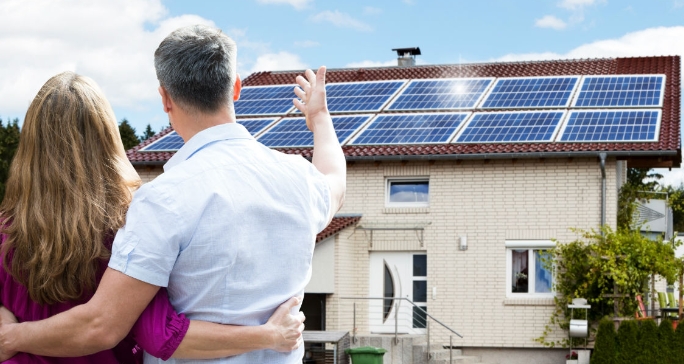Top Window Replacement Options for Homeowners: Choose the Best Fit for Energy Efficiency and Style
When it comes to home improvement, few projects can have as significant an impact on a home’s energy efficiency, aesthetic appeal, and overall value as window replacement. Windows not only play a crucial role in insulation and energy savings but also contribute to the overall character and style of a home. With so many options available in the market, homeowners often find themselves overwhelmed by the choices. This article explores various window replacement options, their benefits, and considerations to help homeowners make informed decisions that align with their needs for energy efficiency and style.
Understanding Window Types
Before diving into specific window replacement options, it is essential to understand the different types of windows available. The primary categories include:
1. Double-Hung Windows: These windows feature two sashes that move vertically. They are popular for their traditional look and ease of cleaning, as both sashes can be tilted inward.
2. Casement Windows: Hinged on one side, casement windows open outward, providing excellent ventilation and unobstructed views. They are often considered energy-efficient due to their tight seal when closed.
3. Awning Windows: Similar to casement windows, awning windows are hinged at the top and open outward. They are ideal for allowing ventilation while keeping rain out.
4. Sliding Windows: These windows consist of one or more sashes that slide horizontally. They are easy to operate and provide a contemporary look.
5. Bay and Bow Windows: Bay windows project outward from the home, creating a nook inside, while bow windows consist of multiple window panels that curve outward. Both options enhance natural light and offer panoramic views.
6. Picture Windows: These fixed windows do not open and are designed to provide unobstructed views. They are often used in combination with other window types.
7. Specialty Windows: These include custom-shaped windows, such as circles, triangles, or arches, which can add unique architectural features to a home.
Energy Efficiency Considerations
When replacing windows, energy efficiency is a primary concern for many homeowners. Windows can account for a significant portion of a home’s energy loss, making it essential to choose products that minimize heat transfer. Here are some key energy efficiency factors to consider:
1. Frame Material: The material of the window frame can impact energy efficiency. Common materials include:
Vinyl: Known for its excellent insulation properties and low maintenance, vinyl windows are a popular choice among homeowners. They are available in various colors and styles.
Wood: Offering natural beauty and good insulation, wood frames require regular maintenance to prevent rot and warping. They can be stained or painted to match any style.
Aluminum: While aluminum frames are durable and low-maintenance, they conduct heat and cold, making them less energy-efficient unless they feature thermal breaks.
Fiberglass: This material boasts high energy efficiency and durability, resisting warping and fading. However, it can be more expensive than other options.
2. Glazing Options: The type of glass used in windows plays a significant role in energy efficiency. Options include:
Single-Glazed: Consisting of a single pane of glass, these windows offer minimal insulation and are generally not recommended for energy efficiency.
Double-Glazed: Featuring two panes of glass with an insulating space between them, double-glazed windows significantly reduce heat transfer.
Triple-Glazed: With three panes of glass, these windows provide even better insulation, making them ideal for extreme climates.
Low-E Glass: Low-emissivity (Low-E) glass has a special coating that reflects heat while allowing natural light to enter, enhancing energy efficiency.
3. Gas Fills: Many energy-efficient windows are filled with inert gases, such as argon or krypton, which provide better insulation than air.
4. Energy Ratings: Look for windows with energy ratings from organizations like the National Fenestration Rating Council (NFRC). These ratings indicate the energy performance of windows, including U-factor, solar heat gain coefficient, and visible transmittance.
Choosing the Right Window Style
While energy efficiency is crucial, style is equally important when selecting replacement windows. The design of windows should complement the architectural style of the home, enhancing its overall appeal. Here are some popular window styles to consider:
1. Traditional Styles: For classic homes, traditional window styles, such as double-hung and casement windows, can enhance the home's character. These styles often feature decorative grilles and classic trims.
2. Contemporary Styles: Modern homes benefit from sleek, minimalist window designs, such as sliding or picture windows. Large expanses of glass can create a seamless connection between indoor and outdoor spaces.
3. Cottage Styles: For cottage or rustic homes, features like divided lite windows and wooden frames can add charm and character. Bay and bow windows can also create cozy reading nooks.
4. Custom Designs: Homeowners with unique architectural features may opt for custom windows that match specific shapes or sizes. Specialty windows can be an excellent way to enhance a home’s design.
5. Energy-Efficient Aesthetics: Many modern window designs incorporate energy-efficient features without sacrificing style. Homeowners can find windows that combine aesthetic appeal with advanced technology.
Installation Considerations
Once you have chosen the right windows for your home, the installation process is critical to ensure optimal performance. Poor installation can lead to air leaks, moisture issues, and reduced energy efficiency. Here are some essential installation considerations:
1. Hiring Professionals: While DIY window installation may be tempting, hiring professional installers is often the best choice. Experienced professionals can ensure proper sealing and fit, maximizing the window's energy efficiency.
2. Check for Permits: Depending on local regulations, you may need permits for window replacement. Check with your local building authority to ensure compliance.
3. Assess Existing Frames: In some cases, it may be possible to install new windows within existing frames, known as insert windows. However, if the frames are rotting or damaged, a full-frame replacement may be necessary.
4. Proper Sealing: Ensure that all gaps between the window and the frame are properly sealed with weatherstripping or caulking to prevent air leaks.
5. Consideration for Climate: Installation techniques may vary based on the local climate. For example, homes in colder climates may require additional insulation around windows.
Maintenance and Care
Once your new windows are installed, regular maintenance is crucial to ensure their longevity and performance. Here are some maintenance tips:
1. Cleaning: Regularly clean window glass using mild soap and water. Avoid abrasive cleaners that can scratch the glass or damage the frame.
2. Inspect Seals and Weatherstripping: Periodically check the seals and weatherstripping around windows for signs of wear or damage. Replace any worn components to maintain energy efficiency.
3. Lubricate Moving Parts: For windows with moving parts, such as double-hung or casement windows, apply lubricant to hinges and tracks to ensure smooth operation.
4. Check for Damage: Inspect windows for signs of damage, such as cracks or chips in the glass. Promptly repair any issues to prevent further damage.
5. Repaint or Refinish Wood Frames: If you have wooden window frames, consider repainting or refinishing them every few years to protect against moisture and UV damage.
Cost Considerations
The cost of window replacement can vary widely based on factors such as window type, materials, and installation. Here are some cost considerations to keep in mind:
1. Window Type: Different window styles come with varying price points. For instance, custom or specialty windows tend to be more expensive than standard options.
2. Material Choice: Frame materials significantly impact cost. Vinyl windows are typically more affordable than wood or fiberglass options.
3. Energy Efficiency Features: Windows with advanced energy-efficient features, such as Low-E glass or triple glazing, may have a higher upfront cost but can lead to long-term savings on energy bills.
4. Installation Costs: Professional installation can add to the overall cost but is often worth the investment for the quality and peace of mind it provides.
5. Potential Tax Credits: Homeowners may be eligible for tax credits or rebates for installing energy-efficient windows. Check with local utility companies or government programs for available incentives.
Conclusion
Replacing windows is a significant investment for homeowners, impacting energy efficiency, home aesthetics, and property value. By understanding the various window types, energy efficiency considerations, and style options, homeowners can make informed decisions that align with their needs and preferences. With proper installation and maintenance, new windows can enhance a home’s comfort and look while contributing to energy savings for years to come. Whether opting for traditional, contemporary, or custom designs, the right window replacement can transform a home into a more beautiful and energy-efficient space.
Top Window Replacement Options for Homeowners: Choose the Best Fit for Energy Efficiency and Style
When selecting window replacement options, homeowners should consider energy efficiency and aesthetic appeal. Vinyl windows offer excellent insulation and require minimal maintenance, making them a popular choice. Wood windows provide a classic look and natural insulation but need regular upkeep. Fiberglass windows are durable and energy-efficient, ideal for extreme climates. For a modern touch, aluminum windows are sleek and lightweight, though they may require thermal breaks for better insulation. Homeowners should also evaluate features like double or triple glazing, low-E coatings, and gas fills to enhance energy efficiency. Ultimately, the best choice balances performance, style, and budget.

Best Window Replacement Service Companies 2024
Affordable Homeowners Insurance Near Me: Get Quotes and Save Today!

Why Solar Systems are the Perfect Fit for Your Family

Best Home Improvement Contractors Near Me in 2024: How to Find the Perfect Fit

Hair Loss Treatment: Options and Strategies for Regaining Your Hair

Whole Life Insurance Quotes: Understanding Your Options and Making Informed Decisions
